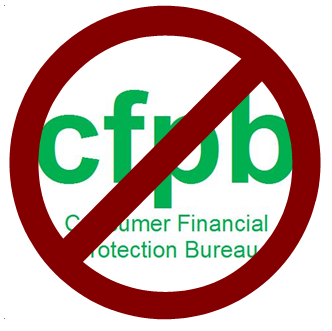By Peter Hong
There is an all too common pattern in Washington, D.C. Congress does nothing. A crisis arises. Panicked, Congress overreacts. It creates bad laws. These bad laws preclude or delay any recovery that would have resulted from a market readjustment. Congress does nothing — until the next crisis.
This pattern flared up with a vengeance, following the subprime mortgage crisis of 2007-08. During the 2008 meltdown, Congress bailed out the nation’s biggest financial institutions on the backs of taxpayers by passing the Troubled Assets Recovery Program (TARP). TARP’s passage fueled enough public outrage against the Wall Street to Washington “power corridor,” to birth the Tea Party movement.
Starting in 2009, the Obama administration and its Democrat-controlled Congress misread (or ignored) the change message voters delivered in 2008. They doubled down on their big government ideology by passing a trifecta of public horribles: the $800 billion economic “stimulus” package, Obamacare, and the “Dodd-Frank Wall Street Reform and Consumer Protection Act” (Dodd-Frank). Inspired by the tea party movement, the voters of 2010 handed Democrats a loss of 63 seats in the House and six in the Senate, six governorships, and control of eleven fewer state legislatures.
The redheaded stepbrother of the stimulus and Obamacare, Dodd-Frank may have done more long-term damage to the economy and slowed down the recovery than either of its better-known counterparts. According to the American Bankers Association, as of last September, 1,708 community banks had disappeared from the map — more than one for every business day Dodd-Frank had been in effect. Over that time, virtually no new banks had been formed, reflecting an unprecedented void of investment in the industry. Moreover, by losing their primary — sometimes only — community lending option, businesses, particularly emerging and startup enterprises, suffered and failed, as did their local economies.
Making matters worse, the same financial conglomerates on Wall Street that were bailed out under the “too big to fail” (TBTF) policy and targeted (in name only apparently) by the so-called “Wall Street Reform Act” have not only survived, but thrived because of Dodd-Frank. Dodd-Frank created an entirely new level of bureaucracy, the Financial Stability Oversight Council (FSOC), to identify a special category of large financial institutions whose failure regulators would consider catastrophic. As House Financial Services Committee Chairman Jeb Hensarling noted, instead of ending the TBTF policy, Dodd-Frank “effectively designated an entire category of Wall Street firms as TBTF and created a taxpayer-financed bailout fund” for them.
Creating new layers of supra-regulation, like FSOC, and fortifying the administrative state is the ruinous legacy of Dodd-Frank. Perhaps the most prominent bureaucratic spectacle created by Dodd-Frank was the Consumer Financial Protection Bureau (CFPB). This brainchild of Elizabeth Warren is a haven for left-wing lawyers to sue, extort and otherwise harass businesses in the name of “consumer protection.” Because it was designed to be “independent,” the agency is structured to be accountable to no one — not the president, nor Congress, nor the courts. The epitome of the administrative state run amok, the CFPB has ravaged the small business landscape like a financial tornado — with no one to whom to answer.
And unaccountability is the biggest problem with the rise of the administrative state. Where do you turn when the FSOC uses your tax dollars to bail out the next Bear Stearns or AIG? Whom do you hold accountable and vote out when the CFPB chases away businesses and lenders and wrecks your community? Have our elected representatives surrendered their (and our) constitutional authority to make the federal government serve us, rather than the other way around?
Congress can answer these questions affirmatively by passing monumental legislation introduced by Chairman Hensarling to significantly overhaul the Dodd-Frank Act. The “Financial CHOICE Act” fundamentally shifts the law’s current favoritism and protection of big Wall Street firms back to Main Street banks and businesses. It effectively ends the too big to fail policy and strips away the FSOC’s power to bail out financial firms — leaving bankruptcy as the appropriate and only cure for failure. The CHOICE Act also demands greater accountability from the players on Wall Street by significantly increasing fines and penalties for financial fraud and deceptive practices in the financial industry.
Second, the CHOICE Act takes major steps to reassert Congress’ Article I obligations to tame the feckless administrative state. It defangs the rogue state of the CFPB by making its director removable at will by the president and subjecting the agency’s funding to the congressional appropriations process — like every other executive agency. The bill also repeals the Labor Department’s dreaded “fiduciary rule,” which would jeopardize working Americans’ access to investment advice. And it also forces the federal courts to resume their obligation to hold accountable the agents of the administrative state, like the CFPB, by repealing the Chevron doctrine.
The Financial Services Committee voted to report the bill favorably to the House floor — with recalcitrant Democrats clinging to the big government barriers Wall Street uses to protect its market share. In the shadow of health care, it is worth watching whether House leadership will follow the principled course charted by the CHOICE Act or capitulate to the old regime preserving Dodd-Frank.
Because our financial system is highly complicated, so too are the laws that govern it. So, how does the ordinary consumer know for sure that Dodd-Frank is really all that bad and the CHOICE Act all that necessary? Don’t take my word for it — consider the opinion of some noted “experts” on the issue.
House Financial Services Committee Ranking Democrat Maxine Waters: “Dodd-Frank repeal is the wrong choice.”
Senator Elizabeth Warren: “Let me be blunt. [The Financial CHOICE Act] is a 586-page insult to working families.”
J.P. Morgan CEO Jamie Dimon: “We’re not for wholesale throwing out of Dodd-Frank.”
They should know. And now, so do you.
Peter Hong is a contributing reporter at Americans for Limited Government.







